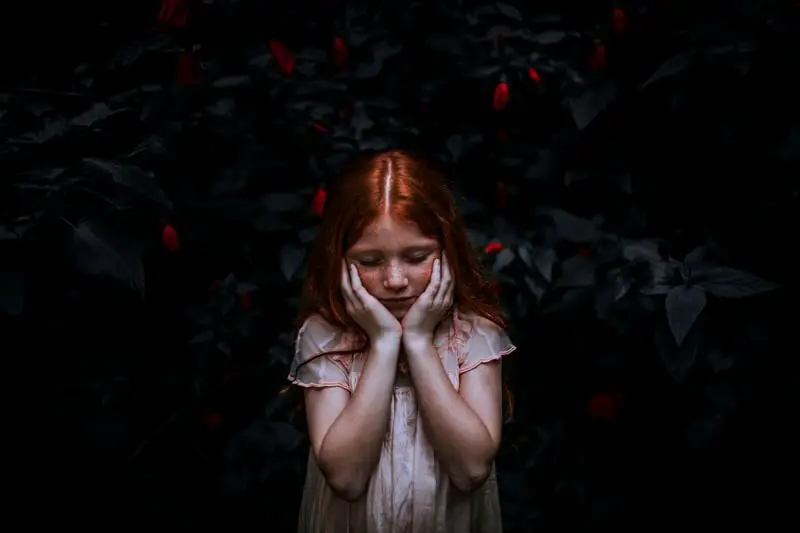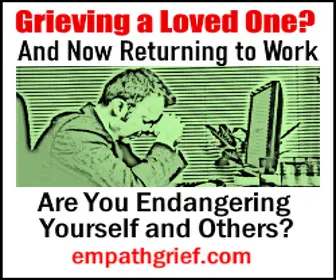Going to a funeral is hard for everyone no matter what the age or the reason for death. A lot of people have children and young relatives that they may want to bring to the funeral. But what age is really appropriate to bring a child to a funeral?
Any age is appropriate to bring a child to a funeral. This is as long as the child is educated & has the best possible understanding that one can have, at their age. Keep the explanation as simple as possible. Also in a difficult death, it may be best to forgo that part until the child is older.
Every situation is different, and no two will be alike. From the type of death, the family’s beliefs, the child’s age, type of funeral, the time between the death and funeral, etc.
Below is a more in-depth look into when, why or why not to bring a child to a funeral.

The Essential things to know
A child can be exposed to death at any age, whether that be a funeral or with a family pet. The comprehension of death, what it is and how it fits into the natural cycle of life, varies from child to child and the situation.
Without going too deep into psychology, there are a few topics you should take into consideration when deciding if you should/want to bring your child to the funeral.
At different ages and developmental levels, children have a different understanding of death. You can make a plan about whether you want them to attend on their understanding of these topics.
Remember it is not a certain age that they understand these things. The child may fully grasp one concept and not the other. It is up to the parent or guardian to educate them and to fill in the blanks.
- It is permanent– Permanence is the idea that something is going to remain unchanged indefinitely. It does not have to be death, but most commonly associated with it.
- Death is final– The bodily functions cease to go on. There is no heartbeat or breathing.
- It is inevitable– All living things will die and this is the circle of life.
- The cause of the death– How and why the death occurred.
Children’s lack of understanding of these ideas affect their ability to process what happened and, most children start to understand these ideas being associated with death between the ages of five and seven years.
Before this age, they tend not to be able to grasp that the departed will not be a part of their lives. Especially if they see them on a daily basis.
Children may ask a lot of questions in the short term about the deceased and this could fade or keep going on for years.
You have to remember that different parts of their brains develop at different times as with the rest of their bodies.
The questions will probably be related to “when are they coming back?, Are they still breathing?, How do they eat in ___ after they have gone?, Where will the go?, How did they die? Am I going to die?. These are just a few to think about and to be ready for.
These early years are a crucial period for child development, while some may be more developed than others and can handle going to a funeral or burial most are not.
Bringing a child under five years may bring more stress to an already stressful situation. Children don’t have many filters for their emotions or when asking questions. So while it may be ok for you, others may feel uncomfortable.
Some attending the funeral may find this natural, while others, inappropriate. Each family must decide on where or not to bring the child to the funeral. You may even want to ask the family of the deceased if it is allowed. It is very rare for someone to deny a child coming to the funeral, but out of respect, it would be best.
Children’s Understanding
- Infants and toddlers– At this age, they do not understand death, but they can see and sense what their parent/ guardian are feeling and experiencing.
- Preschoolers– They tend to see death as something temporary. Their emotions are confusion or frustration rather than sadness and anger.
- School-aged children– This is where children begin to understand death as finality and that the loved one will not be coming back.
- Teens– Adolescents should understand death like adults do but, they are not adept at handling their emotions as adults do
What Not To Say to a Child
If they are able to understand that the deceased is not coming back that is a big step. If they don’t or are a bit unsure there are a few things you should steer clear from.
One thing that you should never do to the child is lie to them. I know that one would never think about lying to a child as a good idea, but a “white lie” is the same thing at this age.
- “You have to go.” Whether the child understands what is happening or not, one should never force a child to do anything with regard to death, funerals, and burials. Even though they are young, ask for the child’s input, you may be surprised at what responses you get. When speaking, to them never underestimate a child’s desire to be included.
- “You have to come to see the body” If they do choose to come or you have brought them along, don’t force a child to see inside the casket unless they are interested. Even with the best mortician around, the body will not look the same, the child may get shocked and confused. If they choose to approach the casket, be ready for them to turn around or hesitate. Let them have the opportunity to back out and give them space.
- “Your aunt went on a long trip and she won’t be coming back for a long time.” It was very common in the past to tell stories about trips or long vacations. Then waiting till they are older to explain the situation to them. This gives the impression that they might and are coming back. They may harbor these thoughts and think about these things, even if they do not voice them to you. It would be best not to do this.
- “Your grandfather is just taking a long nap/ sleeping.”- This is another phrase that seems harmless but can really confuse a child. We all hear this phrase almost daily, and for sure children do. If you start to tell them this they may associate sleep with permanence. This could lead to issues with the child sleeping in the short or long term. Children have wild imaginations and these words could let them run wild.
- Absolutes- Since no one actually knows what happens after death, it would be best not to tell them absolutes, even if you are religious. It would be good to phrase it in such matters as you believe, hope, have faith that the deceased went to (religious faith destination). That that they are happy in a new place if you subscribe to religious faith. This does not take anything away from your religion but allows the child to get a better understanding of how things work in the world.
Does it matter who has died?
Yes, it does matter. The names or titles may no matter as much such as grandma or granda. It is the closeness of the person to the child.
They may have a family friend that they see very often and is a staple around the weekends. Where an estranged aunt or uncle may not mean much since they have no real connection to them besides on holidays. The more time spent around the person the harder it will be to explain or comfort the child.
I remember when my paternal grandparents died, well at least now I can recall, I didn’t really get all that upset. We only saw them on very rare occasions and I was still only a toddler when they both passed away.
You also have to take into consideration if the person was close to you and not the child. For instance, your mother, even if you don’t see her often will always hold special memories for you.
So the child may grieve a lot for you and not exactly for the loss of their grandmother. Children are very intuitive and pick up on these emotions and maybe grieving or emulating your emotions.
- Distant Relatives/ not close family friends– Unless the child (of any age) is eager to go, it is probably best that they don’t go. There is no real need and can just cause confusion. If they are in their teens, let them make the choice, but don’t force it.
- Parents/Siblings– It would be best for the child to go no matter what this is something that will have a great effect on them whether they know it or not at the time. Having them be there will allow them to grieve at a later date and give some closure. The only reason for them not to go is if they are not able to really handle themselves, not just some crying and question-asking. A real issue is nonstop screaming or physical abuse.
- Grandparents/ semi-close relationships– Age aside, let the child choose. If they want to go and seem to understand what is happening it may be best for them to go. Again using your best judgment and listening to the child is essential.
Does it matter how they died?
Since you want to be transparent with the child how they died, it could be a difficult topic to discuss in some situations and attending may not be good for the child. If it was a death that may have disfigured the body and still is an open casket it may be best to avoid.
Natural Causes– If it is an elder person and they died of natural causes going over the cycle of life and having the child attending should be an issue.
Cancer/ Unforeseen medical condition– This will be a bit harder and more complicated to discuss but should not be an issue and they could attend with no issues.
Car Accidents/ “Acts of God”– These are usually very sudden and out of the blue, they could not be avoided. Having a child go would teach them about life and its fragility but making sure they are comfortable and not scare them. They may start to think that this will happen to themselves or you.
Smoking/Alcoholism/ Drugs– While not another pleasant topic, it could be beneficial for them to understand what happened. Attending the funeral can show how much everyone loved them and that they are missed. This may seem like a learning opportunity and it can be, but you do not want to use this as a scare tactic.
Suicide– This will be the hardest one to broach and should be handled with great care. If the child is very emotional and/or prone to outbursts it may be best that they don’t attend.
What type of service is going to happen?
This is going to make a huge difference in whether you want to bring your child to the funeral or not. If it is a full funeral service, meaning that there is viewing, religious service, burial, wake/ after congregation of people you may only want to bring them to certain parts.
This could be a whole day event and the child may be very tired emotionally and physically by the end. So skipping parts is always an option.
If you do choose to go to the whole thing or not having explained what is going to happen during and after each step is crucial and be ready for a lot of questions as the day goes on.
It may be hard for some to answer questions while they are grieving as well, so think about this before you bring your child.
- The Viewing– This is usually for an open casket and for people to speak to the bereaved family members. Asking the child if they want to go to this would be the first step, and making sure that they understand that the deceased will be in the room and you will be able to view them. Next is that if they want to go if they want to even view the body, just speaking to the family and being in the same room may be enough and could be traumatic.
- Religious Service/ Tribute- Depending on whether the body is in the room and if it is an open casket could be an issue for a young child. In general, this is a part of that the child could be at with the least issues. They could even be involved if they felt that they wanted to and say a few words about the deceased, but this only if they are old enough generally around the time they can drive. If you only wanted to bring the child to one part of the funeral it would be this one.
- The Burial/Placing of the Urn– This is a major step as it shows permanence to the child and at a young age (5-7 years) they may be very confused about this. So be ready for questions while this is happening if you choose to bring your child.
- Wake/ After Gathering– At the end of the day everyone is going to be a bit worn out the child and yourself included. So keep this in mind. Some gatherings are just food and beverages but others may be more of a celebration. This is great for the child to see as everyone is celebrating the life of the deceased. But it may involve alcohol and this could lead to a lot of emotions being let out and inebriated people. By having the child attend the beginning of the wake or gathering and leaving before things evolve/devolve could show the good parts of the celebration while leaving before it got messy.
How can you make a funeral ‘fun’ for children so that they don’t misbehave?
This is with a lot of the things in funeral planning that are tricky and this is no exception. Making a funeral fun is a really hard task, that may not always be achievable, so don’t feel that it is necessary.
Remember that you have to do what is best for you and your loved ones at this trying time. Here are three of the most common possible situations to keep in mind.
1: I am organizing the funeral and have no children.
It is not your job to entertain the children, saying that, it would be nice if you tried to include them. While you have to right to ask not to have children attend, leaving the option open is a better idea.
The child may be young but they are capable of handling themselves and learn from this life experience. You may want to put on the notice or have an area for children and their families set aside.
This could be at parts of the different parts of the funeral or just for the service. Also stating or communicating before what will be happening.
2: I am organizing the funeral and have children.
Depending on if you want the child to attend the funeral, parts of it or not at all is the first step.
The best option would be to get a babysitter and have them on hand for the funeral you may not need them and this is the best possible situation (read below for more information about babysitters).
If this is not an option having a designated area with some toys, books and adult supervision. This may draw some attention but could put the children at ease if they feel uncomfortable.
3: I am going to a funeral with my child.
Before you make sure that your child wants to go, never force them to do anything that they don’t want to do.
After you have confirmed that they want to go, try to contact the person or place that is organizing the funeral to let them know of your situation and ask about the best way to go about bringing them.
This possibly will feel uncomfortable but it will keep you from a possible awkward situation later. If they are very young, bringing quiet toys and books for them to be occupied with if a situation comes up will also help.
Should you provide a babysitter during the service?
While this may be a new concept to some, this is something that has been done in churches and other religious centers for a long time. It just was not specifically called a “babysitter”.
Having someone volunteer or paid is a great way to occupy children if they attend the funeral and are too young to attend certain parts or have to be taken out of other parts.
If you choose to hire a baby sitter to make sure that they are qualified, informed and compensated well for the duty at hand. Try to give them a heads up on what the ages of the children and the type of venue they will be at. Having different toys, books, videos, games, etc. will also be a huge help to the sitter.
What do other people think about you taking a child to a funeral?
This all depends on the circles that you associate yourself with. While some may think that this is perfectly normal and a good thing for a child to be exposed to death at any age, others will not agree.
Those that agree with you will say it is a part of nature and children should be exposed to this so that they have a better understanding of the natural circle of life.
Everyone dies and children should be educated on the subject as many believe that children are coddled too much in this day and age. It is good for them to hear what that person has done and for them to see all the people that loved and cared about them.
Those that are against bringing children may bring up that the child is not developmentally ready to understand what is happening and this may hurt them in some way.
They may talk about how this for adults and the child will be a distraction to the whole event and bring the attention away from the deceased and toward the child, which is not why there are there.
Lastly, some people just don’t like children and will not be happy if they are around anywhere.
There is a certain group of people that think the whole idea of a funeral is antiquated and they should even be done.
To some, it seems like a relic of the past and outdated to be burying people and wasting valuable time and resources on such a matter.
If you are planning a funeral how can you prevent children from coming or encourage children to attend?
To encourage or prevent children from coming, the best way would be to state this in words. It might feel strange to do but if you want your wishes followed this would be the only full-proof way. This is not the norm done but has become more common nowadays.
Should you pull kids out of school for a funeral?
If the child is ready to attend the funeral this could be a very valuable life lesson that could not learn about in school, so missing a day of school would probably be beneficial.
Most schools will mark this as an excused absence. Do keep in mind that it could be traumatic for the child if this was a close relative or the first time they are attending a funeral.
You may want to keep them home another day or two to make sure they are coping and grieving in a healthy way.
Can children grieve?
Yes, they can and do.
It may just be different than how an adult does. Things like an increase or decrease in play, or seclusion from the rest of the group or family are often signs. You know your child best and while you may be grieving yourself, you should be aware of changes in behavior.
They may want to talk about death a lot and going to the funeral could help them to understand this process. They will see everyone else and how they deal with death.
Patience is necessary to handle these moments and dealing with a child of any age. Children can often be the source of courage, amazement, hope, and recovery at a funeral. They show that will one life has ended another is in its infancy.
When in doubt seek professional help.
As parents, you know your child best and you should be aware of normal responses to death as well as abnormal signs.
It is common for all children to feel a wide range of emotions after the death of a loved one occurs, these include but are not limited to anger, sadness, shock, laughter, and anxiety. How they express these feelings will depend on their development.
Even if they seem they are ok, there is no shame in seeking professional help and having them talk to someone. This could benefit all everyone and help them adjust.
Recommended Grief Support Services (Speak to a professional today from the comfort of your home):




